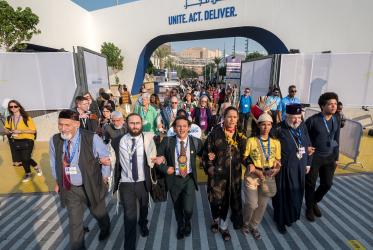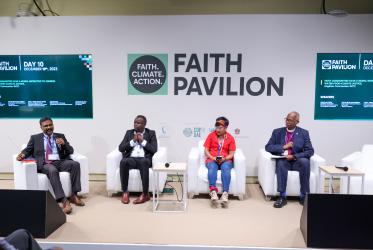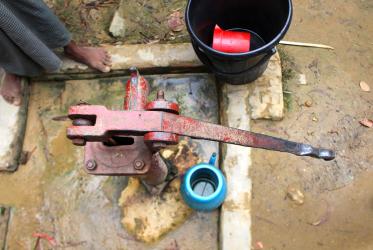Displaying 1 - 20 of 64
Thirsting for peace: Gaza's water woes in the midst of war
31 January 2024
Protecting Ethiopia’s church forests
27 October 2021
EWN members stand in solidarity with water and land defenders
21 September 2021










